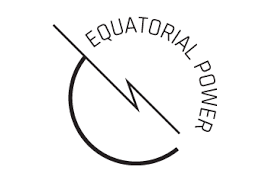ENGIE Equatorial – E-outboards for fishermen on Lake Victoria (Uganda)
Who, What & Where
- ENGIE Equatorial
- E-outboards for fishermen on Lake Victoria
- Lolwe Island, Namayingo District, Uganda
The Company
ENGIE Equatorial, an integrated energy services provider, commissioned a solar hybrid mini-grid in the Lolwe island, bringing power to > 3,800 households and businesses and powering a productive hub. In this context, the e-mobility pilot aims to deploy and test 15 electric outboards for fishing applications to reduce the environmental impact of polluting Internal Combustion Engines (ICE). The project will test the economic and technical feasibility of different business models, strictly focused on fishing applications on Lake Victoria.
Academic papers and blog posts are publicly available to share experiences and lessons learned with a focus on the technical, environmental, social, economic and commercial aspects of the systems. By sharing their experience, ENGIE Equatorial intends to support similar projects and other developers to accelerate the global transition towards more sustainable and low-carbon mobility.
The Challenge
- Equipment costs are high, but the economic viability of the business is possible
- Engines suffer heavy use and outboards as well as accessories are prone to damage. This is fixed by replacing the current outboard propellers with more robust material and engaging the community on best practices to maintain these assets.
- It is feasible to design a battery-swapping model, but it involves the removal of the modules from the boat at every recharge, which is not easy to perform on the dock. Thus, it is recommended to adopt battery modules of max 30 kg each.
- Batteries are expensive, and their duration is crucial for the economic sustainability of the project. They should therefore be handled with a lot of care.
Renewable Solution
15 boats equipped with electric outboards and Li-ion battery banks were introduced as the e-mobility solution.
| Max capacity of vehicle(s) |
|
| Decision on target market |
|
| Local community engagement |
|
| Energy requirements for individual vehicles |
|
| Max operating distance per single charge | The maximum operating range observed so far is between 20-45 km depending on the speed, loading and weather conditions on the lake |
| Battery type | Li-ion batteries |
| Inhouse DRE capacity to power e-mobility solution |
|
| Energy storage & backup power |
|
Project Financing and Costs
244,880 EUR
- ENGIE Equatorial Ltd. (ideation, design, implementation and execution – own and operate)
- IKEA Foundation (co-funder via the Transforming Energy Access platform)
- UK Aid (co-funder via the Transforming Energy Access platform)
- STIMA Lab – University of Massachusetts Amherst (technical partner for data acquisition)
- Energy4Impact (support on Monitoring & Evaluation (M&E) of the project outcome)
Project Outcome
- Creation of three local permanent part-time jobs for battery recharge and asset management
- Reduction of operation costs for fishermen by an estimated 20-60% (depending on cases)
- The approximate amount of gasoline saved would be between 1,628 and 2,750 l per year per boat
- The estimated amount of CO2 emissions saved would be between 57 and 96 t per year
- Access to energy for > 3,800 households and businesses, one water purification facility, one fish drier and four ice machines
Key Recommendations
- Development of local know-how on maintenance and troubleshooting is essential
- Keeping a stock of spare parts is recommended
- Equipment manufacturers should develop a more robust and resilient design for this type of application, to reduce the occurrence of damages and increase equipment lifetime

